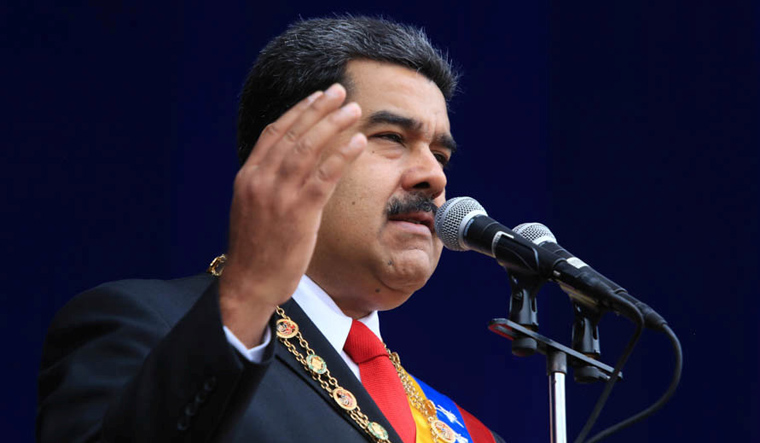Power outages have been taking place since February under Maduro's regime. These have quite a havoc with patients dying due to lack of power for dialysis and premature babies on ventilator support losing their lives. Businesses and schools have also stayed shut for the duration. Maduro blamed the power outage on a sniper attack by the coup-mongering right. Citizens have been really angered and taken to the streets to protest power cuts and water shortages.
The president has hence announced 30 days of rationing electricity in Venezuela. Power failures come alongside a political showdown between Maduro and opposition leader Juan Guaido, who is recognised as interim president by the United States and more than 50 other countries. Speaking on state television, Maduro said he had approved “a 30-day plan” to ration power. He added that the plan will help deal with water shortages caused by the outages. A “brain drain” of qualified personnel has also hit the industry, with about 25,000 people in the electricity sector among the 2.7 million Venezuelans who have emigrated since 2015.
Guaido said that increased corruption and neglect on part of the government had left the electric grid in shambles that caused the blackouts. Maduro also appealed for calm in light of the power outages. Besides the power outages, the country has also been facing a deep economic crisis, which includes a soaring inflation rate.
“To achieve consistency in the provision of electricity, the Bolivarian government decided to maintain the suspension of school activities and establish a workday until 2:00 pm in public and private institutions,” Communications Minister Jorge Rodriguez said on state television. With no electricity, pumping stations can't work, so water service is limited.
“We fill up from a well near here but we don't know if its drinkable. But we're using it,” said Erimar Vale, a resident of Caracas.
Angel Velazquez said he bathed at work because they did not have water at home. Opposition leader Guaido asked people to protest each time there was a blackout.
Jose Aguilar, a Venezuelan consultant living in the United States, said the problems with the power grid run deep. “Over the past 20 years, the infrastructure has been abused due to a lack of maintenance and the postponing of upgrade plans,” he said. Another problem was the “de-professionalisation” of the sector, when Chavez nationalized the privately-run power company in 2007, in which pro-government loyalists took positions as managers and engineers.
Demonstrations by Venezuelans angry about the blackouts broke out Sunday in Caracas. With cooking pots, whistles and flags, dozens of residents spontaneously took to the streets in scattered protests. Protesters and human rights groups said some demonstrators were attacked by “colectivos”, pro-government enforcers that the opposition describes as paramilitary thugs. Maduro has given the “colectivos” permission to contain protests that he describes as violent mobs aiming to oust him from power.


